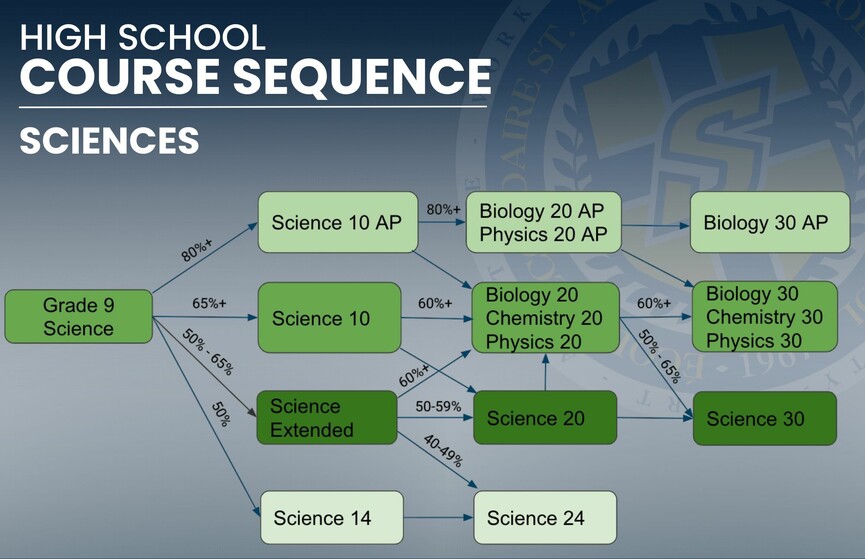Science inspires a sense of wonder and curiosity about the world. Studying the relationships between science, technology and society can help you understand how and why things work. You might even make discoveries that improve yourself and the world.
In order to receive an Alberta High School Diploma, students must complete a MINIMUM of one Grade 11 Science course (20 or 24 level). A mark of 60% or more in the pre-requisite course is recommended for registration. A mark of 75% is the pre-requisite recommended for Advanced Placement (AP) courses. Many post-secondary programs require Grade 12 Science courses.

